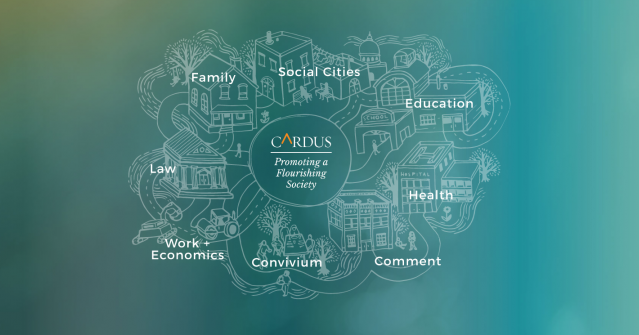
Event Recap: "Experiencing New Vitality Through the Ancient Art of Hospitality" Ancient Art of Hospitality and its connection to the experience of revitalization
On October 2, 2019, a group of pastors and outreach leaders gathered to hear Craig Kraft (Executive Director of Outreach Canada) talk about the Ancient Art of Hospitality and its connection to the experience of revitalization.
I was inspired by Craig’s research as well as by the stories shared in the room.
“Hospitality is one of fundamental spiritual practices of the Christian life,” said Craig. He started unpacking the meaning of hospitality, which is brotherly love to strangers. Currently if one is to google hospitality, several entertainment, hotel, and restaurant industry items are listed. Hospitality was much more than an industry in biblical times.
With regards to Old Testament hospitality, I appreciated learning that the word Hebrew means wanderer. So, it makes a lot of sense that the people of God were called to radical hospitality by welcoming and treating the stranger as one of them, since the Hebrews themselves knew what it meant to be a wanderer or a stranger.
In the New Testament “hospitality is central to the meaning of the Gospel,” said Craig. I really appreciated learning that what Jesus did when approaching the Samaritan woman at the well was a common practice in his time. That is, strangers would go to a water gathering place expecting to be welcomed by somebody there. This helps me understand Abraham’s servant who also met a wife for his master’s son at a well. So, hospitality was at the heart of Jesus’ contemporary and ancestral culture.
I also loved learning that church and hospitality were equivalent in the early church. Believers met in people’s homes. There was no institutional church back then. So, to be the church meant to be gathered at someone’s home. Therefore, the practice of church was the practice of hospitality.
There were a couple of points in Craig’s exposition that were food for thought for me. The first one was that, “how we treat others is how we treat God.” Very interesting! How true is it that I am welcoming God, who I can’t see if, I am having trouble welcoming those I can see? A second food for thought as a person who values evangelism and hospitality was that the practice of hospitality should not have an evangelism agenda behind it and that, “the practice of hospitality is distorted if it becomes primarily an instrumental means to change people.”1 My question to this statement is, what are some practices that could help us engage hospitality and the gospel in a way that noticeably keeps Christ at the center? This question comes from a social justice perspective when it seems that the spoken Gospel is replaced by a practical gospel, sometimes to the point that our guests can’t tell us apart from a secular host. I do appreciate though the importance of welcoming others with no agenda because I myself don’t like to be welcomed by an agenda. At some point, I would love to hear Craig expand on his stamen that: hospitality and evangelism are a continuum rather than compartmentalization.
I think that Craig’s response to a question around his research and the Alpha Program can be one way to see hospitality and evangelism as a continuum. He said that the effectiveness of the Alpha program likely relies on personal relationships. Insiders of the Christian faith befriending, inviting, and accompanying outsiders of the faith to be part of an alpha program. Just posting an Alpha Program sign and expecting strangers to show up without a personal relationship is not very realistic.
Others who attended the event had great observations and questions as well:
Comfort levels: How do we move people from the comfort of the pews to practices beyond their comfort zones? Like talking to strangers?
Foyer friendly. How can churches move from being “foyer friendly” to other practices of hospitality beyond a Sunday service?
Western Christianity Values: Western church leadership culture seems to value numbers, “number of people saved,” over other deeper questions like: “How many people did you welcome this week.”
Business: One of the barriers to hospitality is business. I am a family person, with kids and friends that I can barely keep up with, how will I welcome “another person in my life?“ A good point made by Craig, is that maybe there is a misconception that hospitality is becoming best friends with the person we welcome.
Craig Kraft made himself available for conversation. Reach out to him by email.
To download the slides of his presentation visit: https://www.outreach.ca/Welcoming-Strangers
Please consider writing a 500-word story of your own stories of hospitality so we can post them here to encourage others. Email Claudia Rossetto
Footnotes
- Wrobleski 2012 [back]







